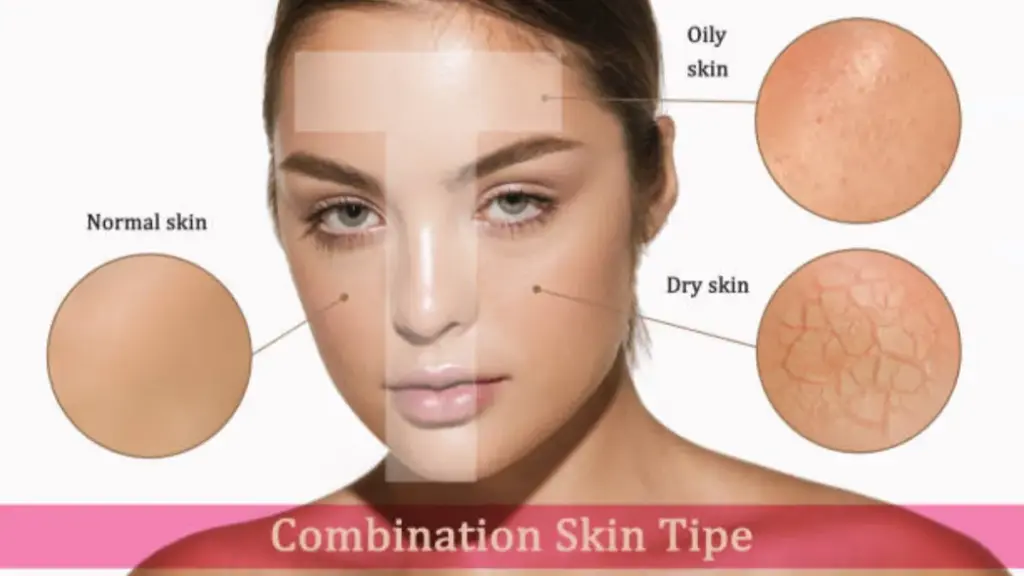
Ihre Haut beherbergt eine blühende Gemeinschaft von Mikroorganismen, die als Hautmikrobiom bezeichnet wird. Zu diesem mikroskopischen Ökosystem gehören Bakterien, Pilze, und andere Mikroben, die zusammenarbeiten, um die Gesundheit Ihrer Haut zu unterstützen. Wenn ausgeglichen, Das Mikrobiom stärkt die Barriere Ihrer Haut, schützt vor schädlichen Bakterien, und fördert die Hydratation.
Warum ist das wichtig?? Studien zeigen, dass das Hautmikrobiom einen direkten Einfluss auf die Hautvitalität hat. Zum Beispiel, Mäuse, die mit probiotischem Joghurt gefüttert wurden, erlebten dickere Haut und aktivere Haarfollikel, Dies sind Anzeichen einer verbesserten Gesundheit. Diese Erkenntnisse unterstreichen die Bedeutung mikrobiomfreundlicher Schönheitsprodukte, die sich auf die Wahrung dieses empfindlichen Gleichgewichts konzentrieren.
Wenn sich die Jahreszeiten ändern, Auch die Bedürfnisse Ihrer Haut verändern sich. Mikrobiombewusste Hautpflege trägt dazu bei, das ganze Jahr über ein gesundes Mikrobiom zu erhalten, Damit ist es ein wesentlicher Bestandteil moderner Hautpflegeroutinen.
Die Rolle des Hautmikrobioms für die Schönheit

Das Mikrobiom der Haut verstehen
Ihre Haut ist die Heimat einer vielfältigen Gemeinschaft von Mikroorganismen, zusammenfassend als Hautmikrobiom bekannt. Dieses Ökosystem umfasst Bakterien, Pilze, und sogar Viren, die harmonisch nebeneinander existieren, wenn Ihre Haut gesund ist. Diese Mikroben besiedeln verschiedene Bereiche Ihrer Haut, wie ölig, feucht, oder trockene Regionen, Anpassung an die einzigartigen Bedingungen jedes Lebensraums. Zum Beispiel:
Mikrobielle Arten | Beschreibung des Lebensraums |
|---|---|
Cutibacterium Aknes | Gefunden an öligen Körperstellen, tief in Talgdrüseneinheiten |
Staphylococcus epidermidis | Verträgt Säure, salzreiche Umgebungen durch Schweiß |
Malassezia-Arten | Der häufigste Pilz auf der menschlichen Haut, vor allem in Talgdrüsen |
Das Hautmikrobiom spielt eine entscheidende Rolle bei der Aufrechterhaltung des Gleichgewichts. Nützliche Mikroben wie Staphylococcus epidermidis helfen, schädliche Krankheitserreger wie z Staphylococcus aureus. Diese Interaktion schützt nicht nur Ihre Haut, sondern stärkt auch Ihr Immunsystem, Sicherstellen, dass angemessen auf externe Bedrohungen reagiert wird.
Wie das Mikrobiom die Hautgesundheit unterstützt
Das Mikrobiom Ihrer Haut fungiert als natürliches Abwehrsystem. Es stärkt Ihre Hautbarrierefunktion, Dies verhindert Wasserverlust und schützt vor Umweltreizen. Nützliche Bakterien produzieren Metaboliten, die die Flüssigkeitszufuhr verbessern und Infektionen verhindern. Zum Beispiel, Cutibacterium Aknes erzeugt Verbindungen, die vor schädlichen Mikroben schützen.
Wissenschaftliche Studien unterstreichen die Bedeutung des Mikrobioms für die Hautgesundheit. Untersuchungen zeigen, dass Probiotika und Postbiotika Verbesserung der Hautfeuchtigkeit und Barrierefunktion und bietet gleichzeitig antimikrobielle Vorteile. Diese Ergebnisse legen nahe, dass die Pflege Ihres Mikrobioms zu einer gesünderen Gesundheit führen kann, widerstandsfähigere Haut.
Probiotika beeinflussen Hauterkrankungen, indem sie Immunreaktionen modulieren und Entzündungen reduzieren.
Nutribiotika, wie Vitamine und Antioxidantien, stärken die Hautbarriere und fördern die Wundheilung.
Häufige Störungen des Hautmikrobioms
Mehrere Faktoren können das empfindliche Gleichgewicht Ihres Hautmikrobioms stören, Dies führt zu einer Dysbiose – einem Zustand, in dem schädliche Mikroben die nützlichen überwiegen. Dieses Ungleichgewicht kann Ihre Hautbarriere schwächen und Probleme wie Trockenheit verursachen, Reizung, oder Akne.
Zu den häufigsten Störfaktoren gehören::
Harte Hautpflegeprodukte: Inhaltsstoffe wie Sulfate und Alkohol entfernen natürliche Öle und nützliche Mikroben.
Umweltstressoren: Umweltverschmutzung und UV-Strahlung können Ihre Haut schädigen und ihr Mikrobiom verändern.
Lebensgewohnheiten: Schlechte Ernährung, Mangel an Schlaf, und Stress wirken sich negativ auf das Mikrobiom Ihrer Haut aus.
Die Aufrechterhaltung eines gesunden Mikrobioms erfordert bewusste Entscheidungen. Entscheiden Sie sich für mikrobiomfreundliche Schönheitsprodukte, die das natürliche Gleichgewicht Ihrer Haut bewahren und Inhaltsstoffe vermeiden, die nützliche Mikroben schädigen könnten.
Formulierungsprinzipien für mikrobiomfreundliche Schönheit
Auswahl mikrobiomfreundlicher Inhaltsstoffe
Die Auswahl der richtigen Inhaltsstoffe ist für die Herstellung mikrobiomfreundlicher Schönheitsprodukte von entscheidender Bedeutung. Diese Inhaltsstoffe sollen die natürliche Vielfalt und Vitalität Ihres Hautmikrobioms unterstützen, ohne dessen empfindliches Gleichgewicht zu stören. Zum Beispiel, Präbiotika und Probiotika sind häufig in Formulierungen enthalten, um nützliche Bakterien zu nähren und eine gesunde Hautbarriere zu fördern. Die Zugabe von Probiotika wie Lactobacillus Ferment oder Bifida Ferment Lysate kann dabei helfen, Ihre Hautbarriere zu reparieren und Reizungen zu reduzieren.
Einige Zutaten, wie zum Beispiel Fructooligosaccharide (FOS), wirken als Präbiotika, indem sie die guten Bakterien auf Ihrer Haut nähren. Dieser Prozess erhöht die Feuchtigkeitsversorgung und verbessert die allgemeine Feuchtigkeitsversorgung der Haut. Weitere mikrobiomfreundliche Inhaltsstoffe, wie Streptococcus Thermophilus Ferment, steigern die Ceramidproduktion, Das stärkt Ihre Hautbarriere und speichert die Feuchtigkeit.
Bei der Auswahl der Zutaten, Es ist wichtig, ihre Fähigkeit zu berücksichtigen, die mikrobielle Vielfalt zu bewahren. Zutaten wie Saccharomyces-Fermentfiltrat, das Antioxidantien und Aminosäuren enthält, verbessern nicht nur die Hautstruktur, sondern schützen auch vor Umweltschäden. Die folgende Tabelle zeigt die wichtigsten Kriterien für die Auswahl mikrobiomfreundlicher Inhaltsstoffe:
Kriterien | Beschreibung |
|---|---|
Diversität | Bewahrt die Vielfalt des Hautmikrobioms in Gegenwart des Produkts. |
Vitalität | Stellt sicher, dass wichtige, für den Hautbereich spezifische Organismen unbeschadet wachsen können. |
Gleichgewicht | Stört das Hautgleichgewicht nicht, indem es schützende Bakterien unterdrückt oder schädliche Bakterien fördert. |
Indem wir uns auf diese Kriterien konzentrieren, Sie können sicherstellen, dass Ihre Hautpflegeprodukte einen mikrobiombasierten Ansatz für eine gesunde Haut unterstützen.
Die Bedeutung des pH-Gleichgewichts in Formulierungen
Die Aufrechterhaltung des richtigen pH-Werts ist für mikrobiomfreundliche Formulierungen von entscheidender Bedeutung. Der natürliche pH-Wert Ihrer Haut ist leicht sauer, typischerweise im Bereich von 4.5 Zu 6.5. Dieser Säuregehalt fördert das Gedeihen nützlicher Bakterien und verhindert gleichzeitig das Wachstum schädlicher Mikroben. Wenn das pH-Gleichgewicht gestört ist, Ihre Hautbarriere wird geschwächt, Dies führt zu Problemen wie Trockenheit, Akne, oder Ekzem.
Ein ausgewogener pH-Wert fördert die Hautfeuchtigkeit und ein jugendliches Aussehen. Untersuchungen zeigen, dass Produkte mit einem optimalen pH-Wert das Mikrobiom der Haut stabilisieren und ihre Widerstandsfähigkeit erhöhen können. Zum Beispiel, Die saure Beschaffenheit des Säureschutzmantels Ihrer Haut unterstützt nicht nur die Hydratation, sondern schützt auch vor Umweltstressoren.
Zur Aufrechterhaltung eines stabilen pH-Werts in Hautpflegeformulierungen, Hersteller verwenden häufig Puffersysteme, natürliche Tenside, und polymere Verdickungsmittel. Diese Komponenten sorgen dafür, dass das Produkt mit Ihrer Haut verträglich bleibt und gleichzeitig das Mikrobiom erhält. Die folgende Tabelle fasst die Ergebnisse zur Bedeutung des pH-Gleichgewichts zusammen:
Beweisbeschreibung | Ergebnisse |
|---|---|
Bedeutung des pH-Gleichgewichts | |
Auswirkungen auf die mikrobielle Vielfalt | Produkte mit ausgewogenem pH-Wert erhöhen die Vielfalt des natürlichen Hautmikrobioms. |
Auswirkungen der Produktnutzung | Prüfprodukte sorgen für stabile mikrobielle Populationen. |
Indem Sie Produkte wählen, deren pH-Wert dem natürlichen Säuregehalt Ihrer Haut entspricht, Sie können das Mikrobiom Ihrer Haut schützen und die Gesundheit langfristig fördern.
Konservierungssysteme, die das Mikrobiom schützen
Konservierungssysteme spielen in mikrobiomfreundlichen Schönheitsformulierungen eine entscheidende Rolle. Diese Systeme verhindern, dass schädliche Bakterien und Pilze Produkte kontaminieren und stellen gleichzeitig sicher, dass nützliche Mikroben unversehrt bleiben. Traditionelle Konservierungsstoffe, wie Parabene und Formaldehyd freisetzende Wirkstoffe, können Ihr Hautmikrobiom stören, indem sie sowohl gute als auch schlechte Bakterien abtöten.
Moderne Konservierungssysteme konzentrieren sich auf sanfte Alternativen, die das natürliche Gleichgewicht Ihrer Haut schützen. Zum Beispiel, Pflanzliche Konservierungsstoffe und antimikrobielle Peptide tragen wirksam zur Aufrechterhaltung der Produktsicherheit bei, ohne Ihr Mikrobiom zu schädigen. Zusätzlich, Einige Formulierungen verwenden Probiotika und Präbiotika, um die Konservierung zu verbessern und gleichzeitig die mikrobielle Vielfalt zu unterstützen.
Bei der Bewertung von Konservierungssystemen, Es ist wichtig, ihre Auswirkungen auf Ihre Hautbarriere zu berücksichtigen. Ein gut konzipiertes System sollte Kontaminationen verhindern und gleichzeitig die Vitalität Ihres Hautmikrobioms bewahren. Durch die Auswahl von Produkten mit mikrobiomfreundlichen Konservierungssystemen, Sie können eine sichere und wirksame Hautpflege genießen, ohne die Gesundheit Ihrer Haut zu beeinträchtigen.
Mikrobiomfreundliche Schönheit in der Praxis

Beispiele für mikrobiomfreundliche Inhaltsstoffe
Mikrobiomfreundliche Schönheitsprodukte basieren auf sorgfältig ausgewählten Inhaltsstoffen, die das Mikrobiom Ihrer Haut pflegen. Diese Inhaltsstoffe sorgen für die Aufrechterhaltung des Gleichgewichts, unterstützen die Flüssigkeitszufuhr, und stärken Sie Ihre Hautbarriere. Probiotika wie Lactobacillus Ferment Lysate sind wegen ihrer Fähigkeit, schädliche Bakterien zu reduzieren, beliebt, wie zum Beispiel Staphylococcus aureus, von fast 39% bei atopischer Haut. Präbiotika, einschließlich Fructooligosaccharide, ernähren Sie nützliche Mikroben, Verbessert die Feuchtigkeitsversorgung und fördert eine gesunde Hautbarriere.
Auch natürliche Inhaltsstoffe spielen eine Schlüsselrolle. Jojobaöl, zum Beispiel, wurde gezeigt Verbesserung der Hautgesundheit innerhalb von zwei Wochen, wie in einer Fallstudie zu festen Formulierungen hervorgehoben. Ähnlich, Thermalwasser wirkt als Mikrobiom-Booster, Reduzierung neurogener Entzündungen durch 22% im Vergleich zu herkömmlichen Anti-Rötungswirkstoffen. These examples demonstrate how microbiome-supportive ingredients can transform your skin care routine.
Product categories designed for microbiome health
Microbiome-friendly beauty spans various product categories, each tailored to support your skin’s microbiome. Cleansing products, such as gentle micellar waters and oil-based cleansers, remove impurities without stripping your skin of its natural oils. Moisturizers enriched with probiotics and prebiotics help maintain hydration while preserving microbial diversity.
Serums designed for microbiome health, like Phyla’s Phortify Serum, use innovative technologies such as bacteriophages to target acne-causing bacteria while maintaining balance. Zusätzlich, microbiome-conscious sunscreens protect your skin barrier from UV damage without disrupting its natural ecosystem. Diese Produkte erfüllen unterschiedliche Hautpflegebedürfnisse und legen gleichzeitig Wert auf die Gesundheit des Mikrobioms Ihrer Haut.
Vorteile einer mikrobiombewussten Hautpflege
Eine mikrobiombewusste Hautpflege bietet zahlreiche Vorteile. Es stärkt Ihre Hautbarriere, Verbessert die Flüssigkeitszufuhr, und reduziert Reizungen. Produkte, die für die Gesundheit des Mikrobioms entwickelt wurden, verbessern auch die Widerstandsfähigkeit der Haut, wodurch es weniger anfällig für Trockenheit ist, Akne, oder Rötung.
Das Verbraucherinteresse an mikrobiomfreundlicher Schönheit wächst weiter. A 2023 Die Umfrage ergab das 68% der Käufer von Hautpflegeprodukten achten jetzt auf mikrobiomfreundliche Angaben, im Vergleich zu Geremen 42% In 2020. Dieser Wandel spiegelt ein wachsendes Bewusstsein für den Zusammenhang zwischen der Gesundheit des Mikrobioms und der allgemeinen Vitalität der Haut wider. Außerdem, Der Markt für Mikrobiom-Produkte im Zusammenhang mit Akne wird voraussichtlich rasant wachsen 11.2% CAGR durch 2027, Dies unterstreicht die steigende Nachfrage nach diesen innovativen Lösungen.
Indem Sie mikrobiomfreundliche Produkte in Ihre Routine integrieren, Sie können gesünder erreichen, sorgt für eine ausgeglichenere Haut und unterstützt gleichzeitig nachhaltige und umweltbewusste Formulierungen.
Verbrauchertipps für mikrobiomfreundliche Hautpflege
So identifizieren Sie mikrobiomfreundliche Produkte
Die Suche nach mikrobiomfreundlichen Produkten kann überwältigend sein, Aber ein paar wichtige Schritte können den Prozess vereinfachen. Sehen Sie sich zunächst das Produktetikett an. Suchen Sie nach Begriffen wie “mikrobiomfreundlich,” “Probiotika,” oder “Präbiotika.” Diese weisen darauf hin, dass das Produkt darauf ausgelegt ist, das Mikrobiom Ihrer Haut zu unterstützen. Auch Zertifizierungen oder Siegel renommierter Organisationen können mikrobiombewusste Formulierungen bestätigen.
Achten Sie auf die Zutatenliste. Produkte mit sanftem, Nicht ablösende Inhaltsstoffe wie Glycerin oder Squalan sind oft mikrobiomfreundlich. Vermeiden Sie aggressive Chemikalien wie Sulfate oder Alkohol, Dies kann das Gleichgewicht Ihrer Haut stören. Zusätzlich, auf klinische Beweise prüfen. Marken, die Mikrobiomstudien oder klinische Studien durchführen, liefern häufig Daten darüber, wie sich ihre Produkte auf das Mikrobiom der Haut auswirken.
Evidenztyp | Beschreibung |
|---|---|
Produktformulierung | Details zu Konservierungsmitteln, Tenside, und Wirkstoffe verwendet. |
Mikrobiomstudien | In-vitro- und In-vivo-Studien zur Bewertung der Auswirkungen des Produkts auf Mikroorganismen. |
Klinische Studien | Ergebnisse aus Studien zur Untersuchung des Mikrobioms der Haut nach längerer Anwendung. |
Verbraucher -Feedback | Erkenntnisse von Benutzern mit empfindlicher oder problematischer Haut. |
Zu vermeidende Inhaltsstoffe für die Gesundheit des Mikrobioms
Bestimmte Inhaltsstoffe können das Mikrobiom Ihrer Haut schädigen und zu Empfindlichkeit oder Reizungen führen. Scharfe Tenside wie Natriumlaurylsulfat entfernen natürliche Öle und nützliche Mikroben. Produkte auf Alkoholbasis können Ihre Haut austrocknen, schwächt seine Barriere. Auch synthetische Duftstoffe und Parabene können die mikrobielle Vielfalt stören.
Stattdessen, Wählen Sie Produkte mit mikrobiomfreundlichen Inhaltsstoffen. Suchen Sie nach Formulierungen, die Probiotika oder Präbiotika enthalten, um Ihre Haut zu nähren. Diese Inhaltsstoffe tragen dazu bei, die Flüssigkeitszufuhr aufrechtzuerhalten und das mikrobielle Gleichgewicht zu unterstützen. Durch den Verzicht auf schädliche Zusatzstoffe, Sie können das Mikrobiom Ihrer Haut schützen und die Empfindlichkeit verringern.
Integrieren Sie mikrobiomfreundliche Produkte in Ihre Routine
Das Hinzufügen mikrobiomfreundlicher Produkte zu Ihrer Routine muss nicht kompliziert sein. Beginnen Sie mit einem sanften Reinigungsmittel, das die natürlichen Öle Ihrer Haut respektiert. Tragen Sie anschließend eine Feuchtigkeitscreme mit Präbiotika oder Probiotika auf, um die Feuchtigkeitsversorgung zu sichern und die mikrobielle Vielfalt zu unterstützen.
Konsistenz ist der Schlüssel. Verwenden Sie täglich mikrobiombewusste Hautpflege, um das Gleichgewicht zu bewahren und die Empfindlichkeit zu reduzieren. Vermeiden Sie übermäßiges Peeling, da dies das Mikrobiom Ihrer Haut stören kann. Stattdessen, Entscheiden Sie sich ein- bis zweimal pro Woche für milde Peelings.
Wenn Sie neue Produkte einführen, Führen Sie zunächst einen Patch-Test durch. Dies hilft Ihnen, mögliche Reaktionen zu erkennen und stellt die Verträglichkeit mit Ihrer Haut sicher. Im Laufe der Zeit, Eine mikrobiomfreundliche Routine kann die Widerstandsfähigkeit und allgemeine Gesundheit Ihrer Haut verbessern.
Das Hautmikrobiom spielt eine entscheidende Rolle bei der Erhaltung einer gesunden Haut. Untersuchungen zeigen, dass es nicht nur vor schädlichen Mikroben schützt, sondern auch die Feuchtigkeitsversorgung unterstützt und die Hautbarriere stärkt. Seine Fähigkeit, sich von Störungen zu erholen unterstreicht seine Widerstandsfähigkeit und Bedeutung für die allgemeine Hautgesundheit.
Bei der Entwicklung mikrobiomfreundlicher Schönheitsprodukte, Verständnis der Wechselwirkungen zwischen der Haut, sein Mikrobiom, und Umweltfaktoren ist wesentlich. Formulierungen sollten sanft sein, innovativ, und ganzheitlich, Bewältigung der kombinierten Auswirkungen des Alterns und äußerer Einflüsse. Diese Prinzipien stellen sicher, dass Produkte die Gesundheit der Haut unterstützen, ohne ihr natürliches Gleichgewicht zu stören.
Die Einführung mikrobiombewusster Hautpflege kann Ihre Routine verändern. Indem Sie Produkte wählen, die das Mikrobiom Ihrer Haut pflegen, Sie können gesünder erreichen, widerstandsfähigere Haut. Beginnen Sie noch heute und erleben Sie die Vorteile eines ausgewogenen und blühenden Hautökosystems.
FAQ
Was bedeutet “mikrobiomfreundlich” bedeuten in der Hautpflege?
Mikrobiomfreundliche Hautpflege unterstützt das natürliche Gleichgewicht der Mikroorganismen auf Ihrer Haut. Diese Produkte verzichten auf aggressive Inhaltsstoffe, die nützliche Mikroben schädigen. Stattdessen, Dazu gehören Präbiotika, Probiotika, oder sanfte Formulierungen, die das Ökosystem Ihrer Haut pflegen.
Tipp: Suchen Sie nach Etiketten, die darauf hinweisen “mikrobiomfreundlich” oder “Probiotisch angereichert” zur einfachen Identifizierung.
Können mikrobiomfreundliche Produkte bei empfindlicher Haut helfen??
Ja! Diese Produkte stärken Ihre Hautbarriere und reduzieren Reizungen. Durch den Erhalt der mikrobiellen Vielfalt, Sie beruhigen Rötungen und verbessern die Feuchtigkeitsversorgung. Empfindliche Haut profitiert oft von mikrobiombewussten Formulierungen.
Notiz: Führen Sie bei neuen Produkten stets einen Patch-Test durch, um sicherzustellen, dass sie mit Ihrer Haut kompatibel sind.
Woher weiß ich, ob ein Produkt mikrobiomfreundlich ist??
Suchen Sie auf dem Etikett nach Begriffen wie “probiotisch,” “Präbiotikum,” oder “mikrobiomsicher.” Suchen Sie nach klinischen Studien oder Zertifizierungen. Vermeiden Sie Produkte mit aggressiven Tensiden, Alkohol, oder synthetische Duftstoffe.
Wichtige Zutaten, auf die Sie achten sollten:
Lactobacillus-Ferment
Fructooligosaccharide
Saccharomyces-Fermentfiltrat
Sind mikrobiomfreundliche Produkte für alle Hauttypen geeignet??
Absolut! Diese Produkte sind für alle Hauttypen geeignet, indem sie das Gleichgewicht und die Feuchtigkeit aufrechterhalten. Ob Ihre Haut fettig ist, trocken, oder Kombination, Mikrobiomfreundliche Formulierungen passen sich Ihren Bedürfnissen an.
Emoji-Erinnerung: 🌱 Mikrobiomfreundlich = sanfte Pflege für jeden Hauttyp!
Ersetzen mikrobiomfreundliche Produkte herkömmliche Hautpflege??
NEIN, Sie ergänzen die traditionelle Hautpflege. Sie können sie zusammen mit Reinigungsmitteln in Ihre Routine integrieren, Feuchtigkeitscremes, und Seren. Sie verbessern die Widerstandsfähigkeit und die allgemeine Gesundheit Ihrer Haut, ohne andere wichtige Inhaltsstoffe zu ersetzen.
Für die Spitze: Beginnen Sie mit einem mikrobiomfreundlichen Reinigungsmittel oder einer Feuchtigkeitscreme, um die Integration zu erleichtern.
















